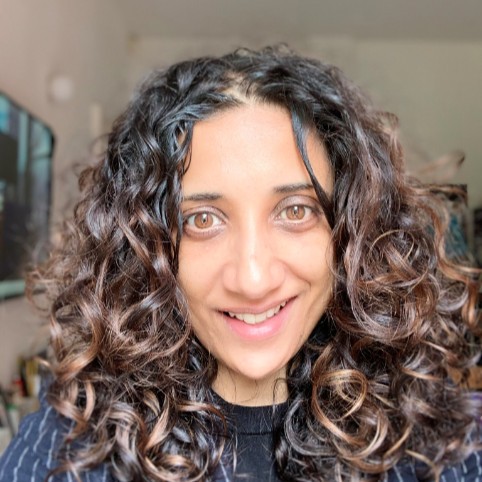
Latest News
Dr Sarb Clare

Liam: Hello Sarb. Can you tell me a little bit about your current role at Sandwell and West Birmingham NHS Trust?
Sarb: I’m an Acute Medical Consultant and I’ve been doing that role for nearly 13 years. I’m also the Deputy Medical Director at Sandwell and West Birmingham NHS Trust.
With point of care ultrasound, I’ve been doing that more or less for 16-17 years. I was one of the first trainees to really start the momentum of really going out there and scanning patients. Everyone used to look at me and ask, “what are you doing?”
Thankfully, it is now accepted as normal practice within the hospital community.
Liam: You’re speaking this November at AGM [Acute and General Medicine]. What can you share about your session?
Sarb: I’m speaking with an ITU registrar, Dr Chris Duncan, who is based in London and we’re both speaking about Ultrasound for the Generalist. It is really to share with the delegates and the audience how key this skill is. How important it is to have the skill to empower you with knowledge to enable you to make decisions about patients, about prognosis, about diagnosis and how you can even save lives by using Point-of-Care Ultrasound.
We’ll be sharing real life cases and examples of everything I’ve just described earlier. We’ll also touch on the accreditation pathways and how you can become competent.
We’re really passionate about sharing this skill. I always call it the power of POCUS as it enables the best high-quality care for our patients.
Liam: Is there one key takeaway you’re able to share now you hope attendees will leave the event with in a few months’ time?
Sarb: I would say that Point-of-Care Ultrasound has to become a mandated skill for all generalists no matter what specialty you are in, whether it’s surgery or medicine or you’re out there as a General Practitioner. We are a little way behind out colleagues in the United States, Europe, and Australia. So, we really need to get there because the benefits for our patients is absolutely supreme.
Liam: How can we catch up to the United States? Is there anything we can specifically do to close that gap on some of those other countries you mentioned?
Sarb: Absolutely. The US incorporates Point-of-Care Ultrasound into their curriculum for undergraduates. There are a few pockets in the UK but we’re way behind so we have to start the momentum because what we will find in 5-10 years’ time is that our juniors will be competent in ultrasound and our seniors will not. We need to get the momentum and get our voices heard in boardrooms and the undergraduate world that this skill is really part of our complete assessment of patients including history, examination and then ultrasound.
Liam: Turning to the last 12-18 months, what has your experience been in the hospital during the pandemic?
Sarb: I’ve been working at City Hospital in Birmingham which is one of the most deprived areas within the UK and it was really hit hard with covid and unfortunately 30% of our patients died from this terrible illness. It was tough. Tough seeing my colleagues get sick. Tough seeing families coming in together and unfortunately dying. It was really tough and we’re still not out of it yet. But what I would say and what I’m incredibly proud of is the teamwork and the camaraderie. My nursing colleagues are absolutely amazing and inspire me every day. It is an absolute privilege to be able to work in the NHS to care and to serve the local community.
Liam: You’re speaking at AGM. Why is the event important to you and why are you speaking?
Sarb: I’ve spoken at AGM a couple of times before and it has always been about Point-of-Care Ultrasound. Thank you again for inviting me to speak. I think it is a fantastic opportunity, not only for networking, but the audience are generalists, and we need to be able to empower them with this key skill which I’ll be talking about. I think it’s great to have that challenge and that discussion. Even more importantly to get together as we’ve obviously not been together for some time, so I think it will be great to have that energy in the room.
Liam: It will be definitely great to meet in-person again after such a long gap due to covid. One final question from me. You were talking about the power of POCUS and your session at AGM. You also have a book on the subject coming out later this year. Do you want to tell me a little bit more about it?
Sarb: It is a really exciting project which was meant to be delivered during covid time, but adrer a delay we have finally got it through. Dr Chris Duncan and I, and some amazing contributors have written a book called Ultrasound for the Generalist: A Guide to Point of Care Imaging, and it really does cover all aspects whether you’re a GP or an undergraduate or an Advanced Nurse Practitioner, or you’re out in Antarctica! It covers how Point-of-Care Ultrasound can help you and within this book we’ve got lots and lots of cases, which are all real life, and there is a link to all the ultrasound videos. It will take you from basic scanning to the more advanced. It was really our mission to share the message that this skill will really empower you as a clinician and be great for the patients. We’re really excited to be able to share that project with the delegates
Liam: Thank you very much. I look forward to welcoming you at AGM later this year.
- You can follow Dr Sarb Clare on twitter: @GeneralistUS and @AcutemedSarbC
- https://www.youtube.com/watch?v=CH_rJvATJb8
- https://podcasts.apple.com/us/podcast/women-empowering-women-in-medicine/id1565934261
- www.generalistultrasound.com